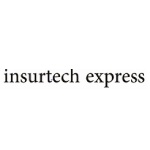Introduction
The insurance industry is a complex and highly regulated sector that plays a critical role in managing risk and protecting individuals and businesses against unexpected events. In this article, we will explore two crucial components that contribute to the efficiency and effectiveness of insurance operations: Insurance Licensing Systems and Insurance Claims Management Software.
Insurance Licensing System
Insurance Licensing Systems are the backbone of the insurance industry's regulatory framework. These systems are designed to oversee and manage the licensing and compliance of insurance professionals, agencies, and carriers, ensuring that they meet the legal requirements necessary to operate within a particular jurisdiction.
Key Functions of Insurance Licensing Systems:
Licensing and Registration: These systems facilitate the application, renewal, and tracking of licenses for insurance agents, brokers, and agencies. They ensure that individuals and entities meet the necessary qualifications and have the required credentials to operate legally within their respective regions.
Compliance Management: Insurance Licensing Systems help monitor ongoing compliance with regulations and reporting requirements. They ensure that insurance professionals adhere to state and federal regulations, which can vary significantly from one jurisdiction to another.
Information Accessibility: Centralized databases and online portals enable stakeholders, including regulators, insurers, and consumers, to access up-to-date information about licensed insurance professionals and entities.
Fraud Prevention: These systems play a vital role in preventing fraud by verifying the legitimacy of insurance professionals and agencies. They help identify unlicensed or fraudulent entities, protecting consumers and the industry from fraudulent activities.
Insurance Claims Management Software
Insurance Claims Management Software is a powerful tool used by insurance companies to efficiently process and manage insurance claims. It streamlines the entire claims process, from initial reporting to settlement, by providing a centralized platform for data management and communication.
Key Features of Insurance Claims Management Software:
Automated Claims Processing: These systems automate the claims submission and processing procedures, reducing the time and resources required to handle claims. Claims adjusters can process claims more quickly and accurately.
Document Management: Claims management software allows for the storage and retrieval of all relevant documents, such as policies, medical reports, and photographs, improving transparency and record-keeping.
Communication Tools: These systems facilitate communication between policyholders, claims adjusters, and third parties involved in the claims process. Real-time updates and notifications keep all stakeholders informed.
Fraud Detection: Advanced claims management software often incorporates fraud detection algorithms to identify potentially fraudulent claims, helping insurers mitigate risks and losses.
Analytics and Reporting: The software generates data and reports that enable insurers to analyze claims trends, make data-driven decisions, and improve operational efficiency.
Benefits of Integration
The integration of Insurance Licensing Systems and Insurance Claims Management Software offers several benefits for the insurance industry:
Enhanced Regulatory Compliance: By ensuring that licensed professionals and agencies comply with regulations, the industry can maintain trust and transparency with consumers and regulators.
Improved Efficiency: Claims management software simplifies and expedites the claims process, reducing administrative costs and enhancing the overall customer experience.
Fraud Prevention: The combined use of these systems helps identify and prevent fraudulent activities at multiple stages of insurance operations, safeguarding both the industry and its policyholders.
Data-Driven Decision-Making: Access to data and analytics enables insurers to make informed decisions, optimize processes, and respond proactively to industry trends.
Conclusion
Insurance Licensing Systems and Insurance Claims Management Software are vital components of the insurance industry's infrastructure. They promote regulatory compliance, streamline operations, improve efficiency, and protect against fraudulent activities. As the industry continues to evolve and embrace technology, these systems will play an increasingly pivotal role in ensuring its effectiveness and long-term sustainability.


No comments yet